By Leon Overee
The movie industry in Singapore had its humble beginnings in the 1950s with the huge influx of Malay and Chinese language features that were promoted by showbiz giants Cathay Organization and Shaw Brothers. This golden era went through a decline in the 1960s, with the import of American blockbusters and the advent of television. It was not after a few lengthy decades before the booming industry got back on its feet.
Fast-forward to the reckless 1990s hippy-era, and we saw trailblazing innovators like Eric Khoo, Jack Neo, and Royston Tan initiate a shift in the cinematic appetite of the nation. These pioneers blended the isms of everyday life with “Singlish” (English-based creole language) banter so loved by people from the region, to create unique patchworks in the fabric of Asian filmmaking.
The world finally had a chance to witness what is truly at the heart of Southeast Asia's Little Red Dot.
Here, in no particular order, is a review of 15 of the best local movies
1. Tiong Bahru Social Club (2020, dir. Tan Bee Thiam)

A tongue-in-cheek black comedy that follows an office worker who decides to abandon the life working the nine-to-five to participate in a whimsical experiment. One that aims to create the world's happiest “heartlanders”. All the drama is set within a dystopian futuristic version of the historical Tiong Bahru District.
This debut effort by independent creative Tan Bee Thiam, presents a very quirky and colorful critique of the high standards of living in Singapore. Incredibly stylized and thought-provoking, “TBSC” has production values very similar to the works of Wes Anderson, coupled with undertones of Sci-fi series like “Black Mirror” and “Twilight Zone”.
2. Shirkers (2018, dir. Sandi Tan)
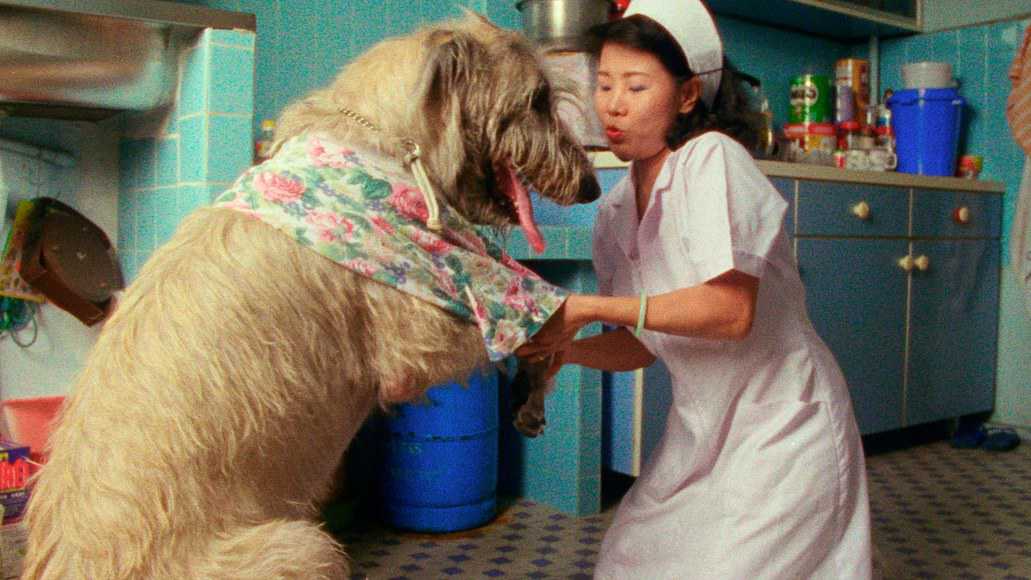
Lost footage. Stolen memories. The What if's.
These enigmas collide and clash in the explosive experimental documentary by another first-time director, Sandi Tan. The film is a personal exposé of her life growing up in 1990s Singapore, told through a surrealistic eyepiece of muted 16mm video frames.
Once upon a time, Sandi created a motion picture with her pals: a dreamy juxtaposition of a retro Singapore shot between scenes of giddy adolescent joy and wonder. Sadly, in a cruel twist of fate, a villainous self-proclaimed impresario came along with the promise of mentorship, leading the friends to hand over their hard-shot footage. The roll of film eventually disappears into oblivion.
“Shirkers” is the result of an older Sandi making sense of the events that transpired, after finding her lost footage two decades later.

3. Money No Enough (1998, dir. T.L. Tay)
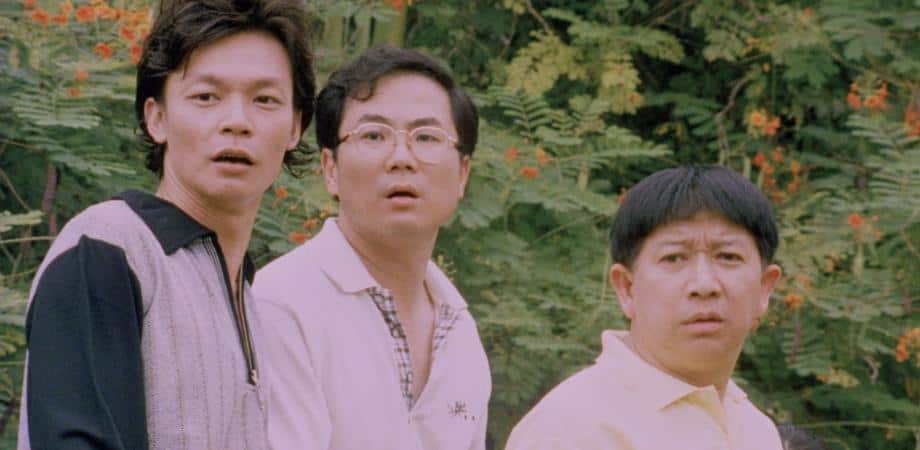
Three rubber-faced chums partner up for a car-polishing business after suffering financial woe and other failing career ventures. The lead actors are none other than Henry Thia, Jack Neo, and Mark Lee, who are famous in Singapore for their incredibly popular “Comedy Night” sketch television program from the time.
“Money No Enough” undoubtedly feels like an extension of their popular series. Rife with the threesome's trademark crass humor, expletives in Chinese dialects, and a myriad of caricatures and stereotypes. A recipe that locals crave and adore, proving why this picture has the distinction of being the highest-earning Singapore movie ever. And the one that set in motion a revival of local cinema.
4. 881 (2007, dir. Royston Tan)

Set during the hungry ghost festival, Royston Tan's triumphant celebration of the campy getai (live stage performance) sub-culture is a blaring and joyous laugh-out-loud affair.
After being endowed with supernatural powers from the deities of music, two fans of getai unite and kick-start their career as the legendary ‘papayas'. Unknown to them, jealousy is brewing and eventually erupts into an all-out war of the fourth dimension when the obnoxious ‘Durian Sisters' make their appearance on stage.
What ensues is a fruity caper of epic proportions with each pair one-upping the other till the bitter end.
5. Ilo Ilo (2013, dir. Anthony Chen)
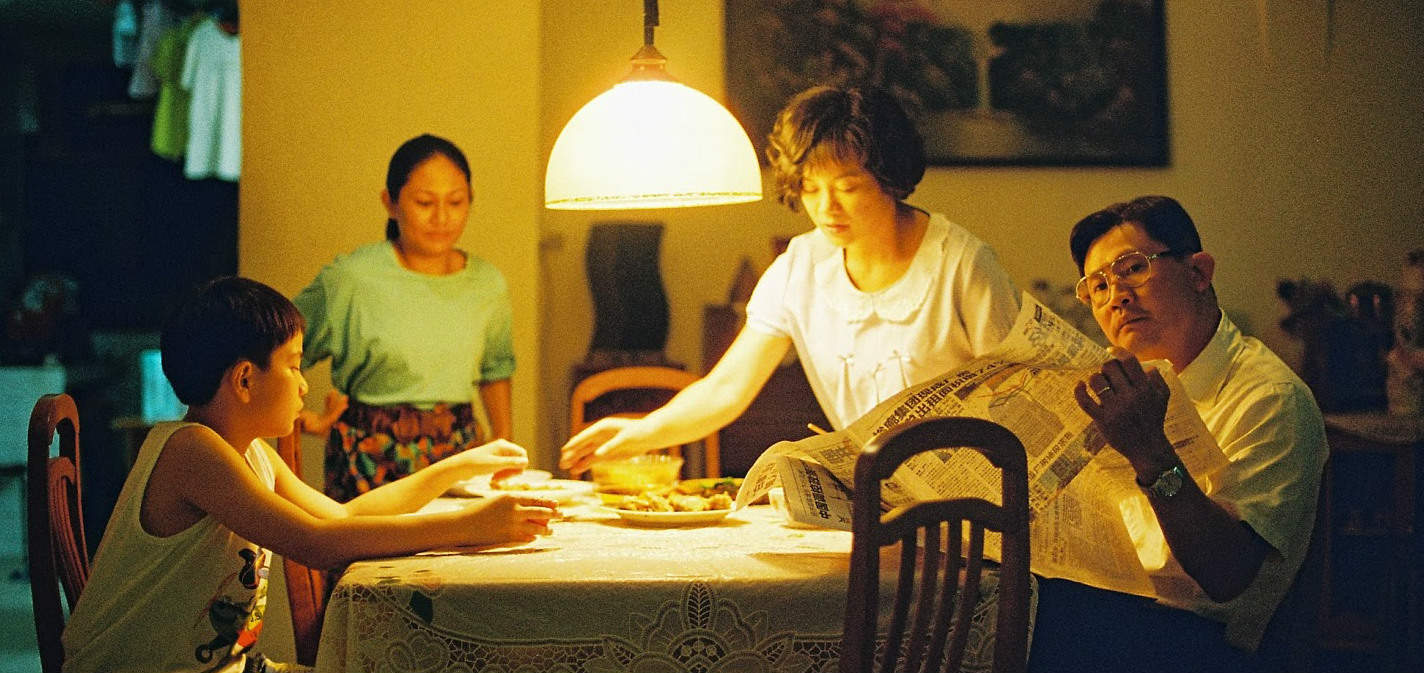
A slow-burning and somber mood piece that marked the debut of the then 30-year-old Anthony Chen. It won the nation's first-ever award at the Cannes Film Festival (Camera d'Or).
The year is 1997. Asia is going through one of its worst financial crises in history. And yet, driven to their wit's end by their problematic child, a couple on the edge of break down, take the decision that would alter their lives forever: hiring a Filipina domestic worker. A young foreigner who ironically teaches the family how to live, love and foster the bonds that hold them together.
6. Apprentice (2016, dir. Boo Junfeng)

If there is one thing that Singapore is known for other than its delectable food culture, it is the nation's draconian stance on capital punishment. The touchy topic is breached upon with Boo Junfeng's harrowing look at the death penalty, from the executioner's point of view.
The bilingual English-Malay drama centers on a young prison officer learning the ropes from his elderly superior, who unexpectedly turns out to be the prison's chief executioner. As their relationship deepens, a shocking revelation threatens to rewrite everything they thought they knew about each other.
7. Homerun (2013, dir. Jack Neo)
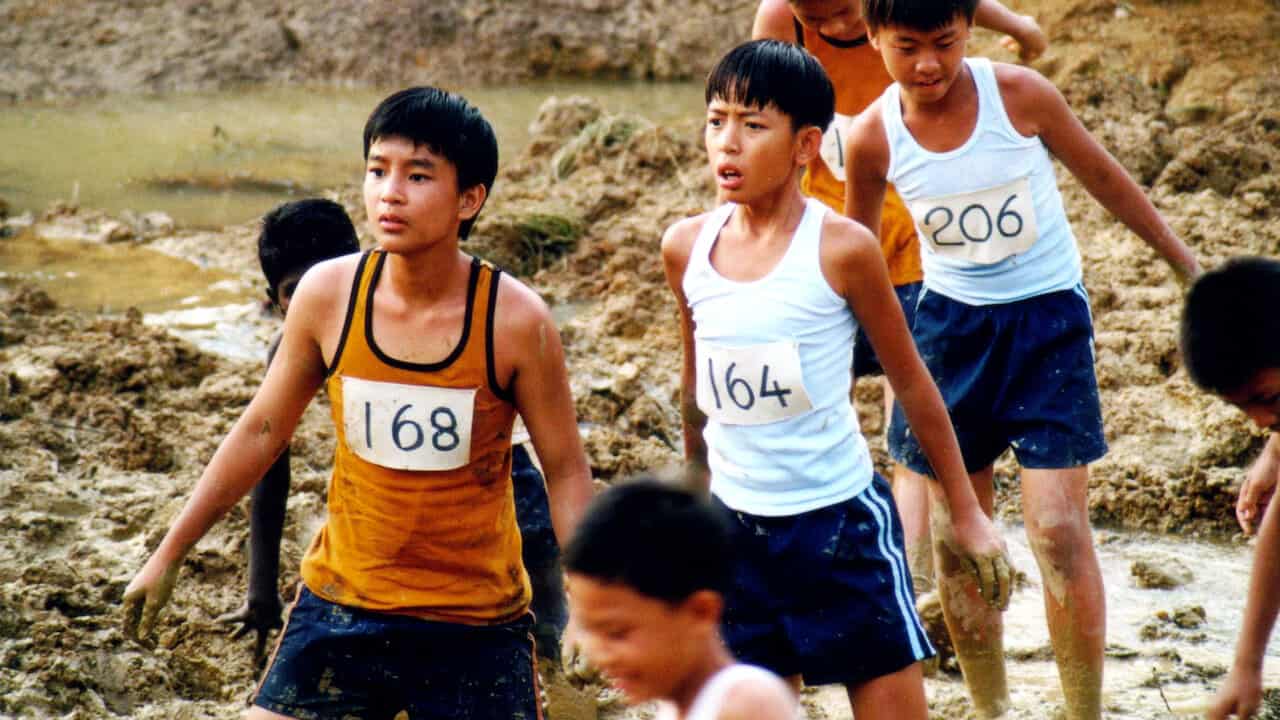
Jack Neo's version of the award-winning Iranian family drama ‘Children of Heaven'. This period drama, set in the 1960s, is about a poor kampung (early communal village) boy's adventures with his sister after discovering that a pair of her shoes had gone missing. At the same time, it also shows how they overcome the odds of growing up under adverse poverty amongst vivid imagery of a pre-independence Singapore.
‘Homerun' tugs upon every heartstring and is a touching melodramatic take on the values of kinship, honesty, and strength.
Interestingly, its sardonic tone on the socio-political relationship between Singapore and Malaysia caused it to be banned in Malaysia.
8. Mee Pok Man (1998, dir. Eric Khoo)
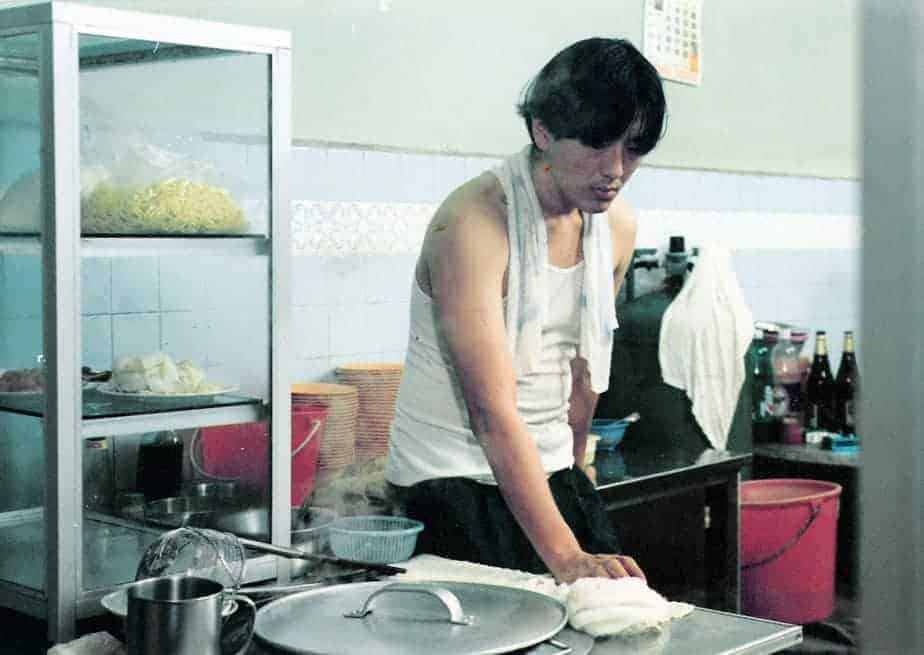
The gritty and erotic black comedy that launched Eric Khoo's career. A Mee Pok (flat and thick rice noodle) seller toils day-to-day after taking over his late father's hawker business.
Nothing is exciting for the Mee Pok Man. Not until the moment he set his eyes upon Bunny, a beautiful hooker that enters his shop one day. The noodle seller grapples with obsession and voyeuristic lust from afar, entranced by Bunny's charm.
But after the streetwalker gets into a horrific accident, Mee Pok Man comes to her rescue and finally gets to explore his inner desires. Some of the scenes from the second act are disturbing and can be uncomfortable to watch as they explore rather morbid themes like necrophilia.
9. Sumpah Orang Minyak (1958, dir. P. Ramlee)
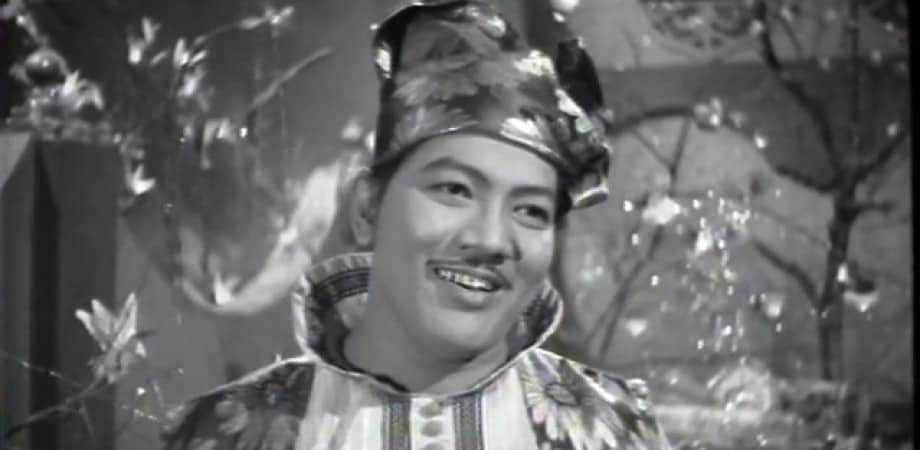
P. Ramlee was the golden boy of the film circuit in Singapore and Malaysia during the 1950s and 60s. His works have stood the test of time and are instantly recognizable for their themes of neorealism, humor, and futuristic elements ahead of its time. ‘Sumpah Orang Minyak' was P. Ramlee at his triple-threat (writing, directing, and acting) best.
In this career-defining magnum opus, a deformed hunchback is outcasted and thrown out from the village. Taking pity on the pariah, a race of supernatural forest dwellers blesses the poor fellow with a second lease at life along with a promise that he never gives in to wrath and vengeance ever again.
Everything crumbles when the hunchback decides to kill a man in a spat of anger, ending his second chance at life. Disheartened by his predicament, the beggar seeks help from the devil.
10. Be With Me (2005, dir. Eric Khoo)

A quietly poetic collection of three short stories about the intricacies of love but also the bitter air of emptiness. The script is inspired by the life and times of the late Theresa Poh Lin Chan, a deafblind teacher. Minimalist and subtle in its approach but aesthetically delicate, the film verges on arthouse with its touching narrative told through thin dialogue.
Eric Khoo delivers in his words, a ‘cinematic version of a hymn' that is both contemplative and relatable, lingering with you long after its credit rolls.


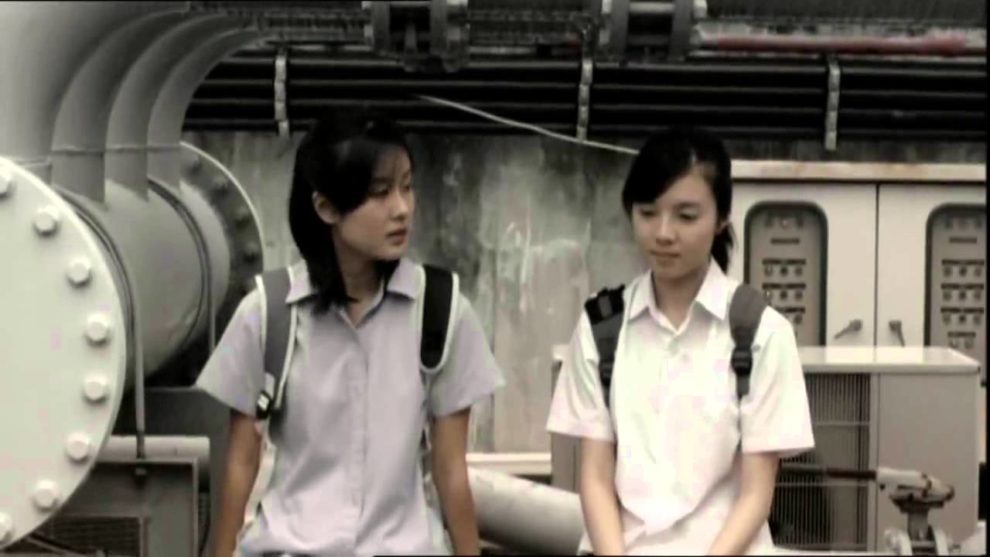




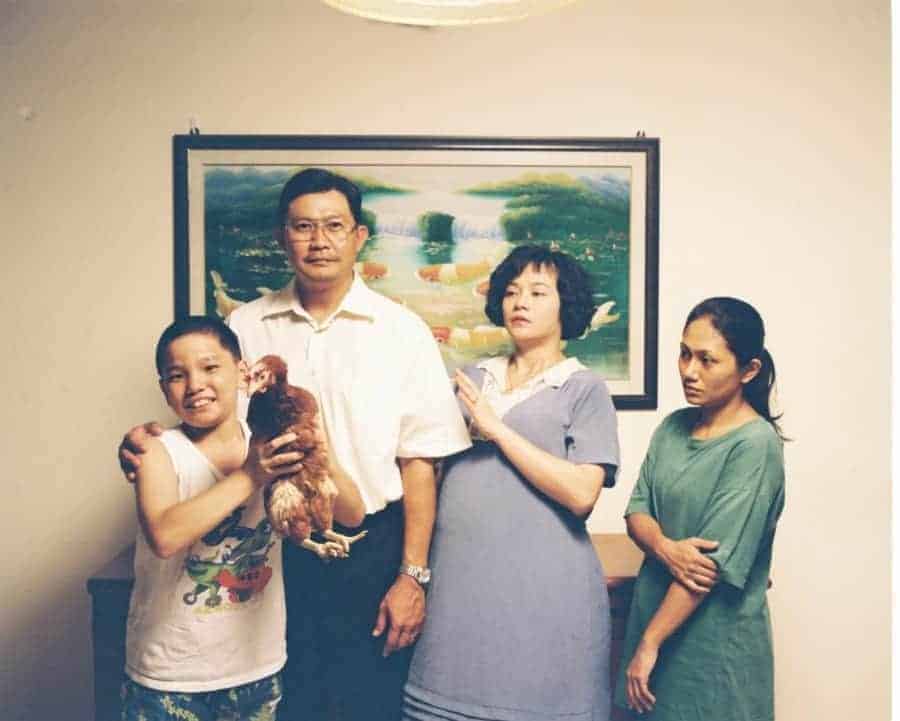
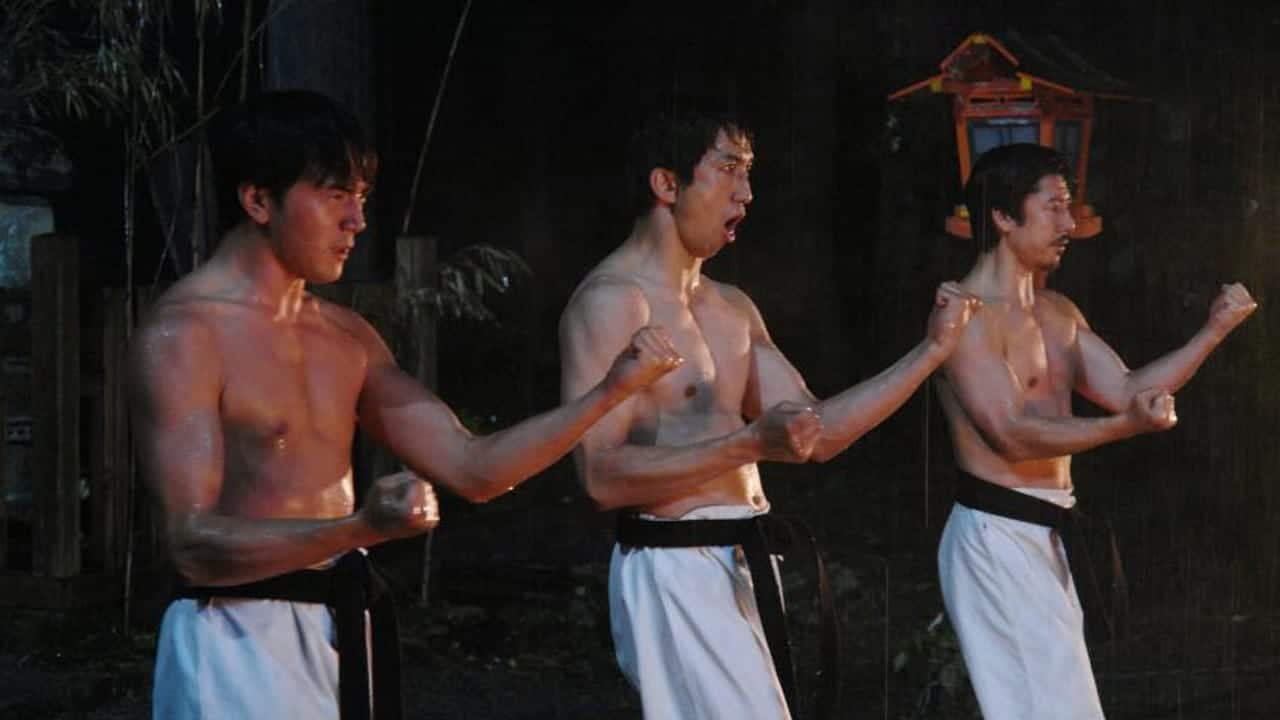
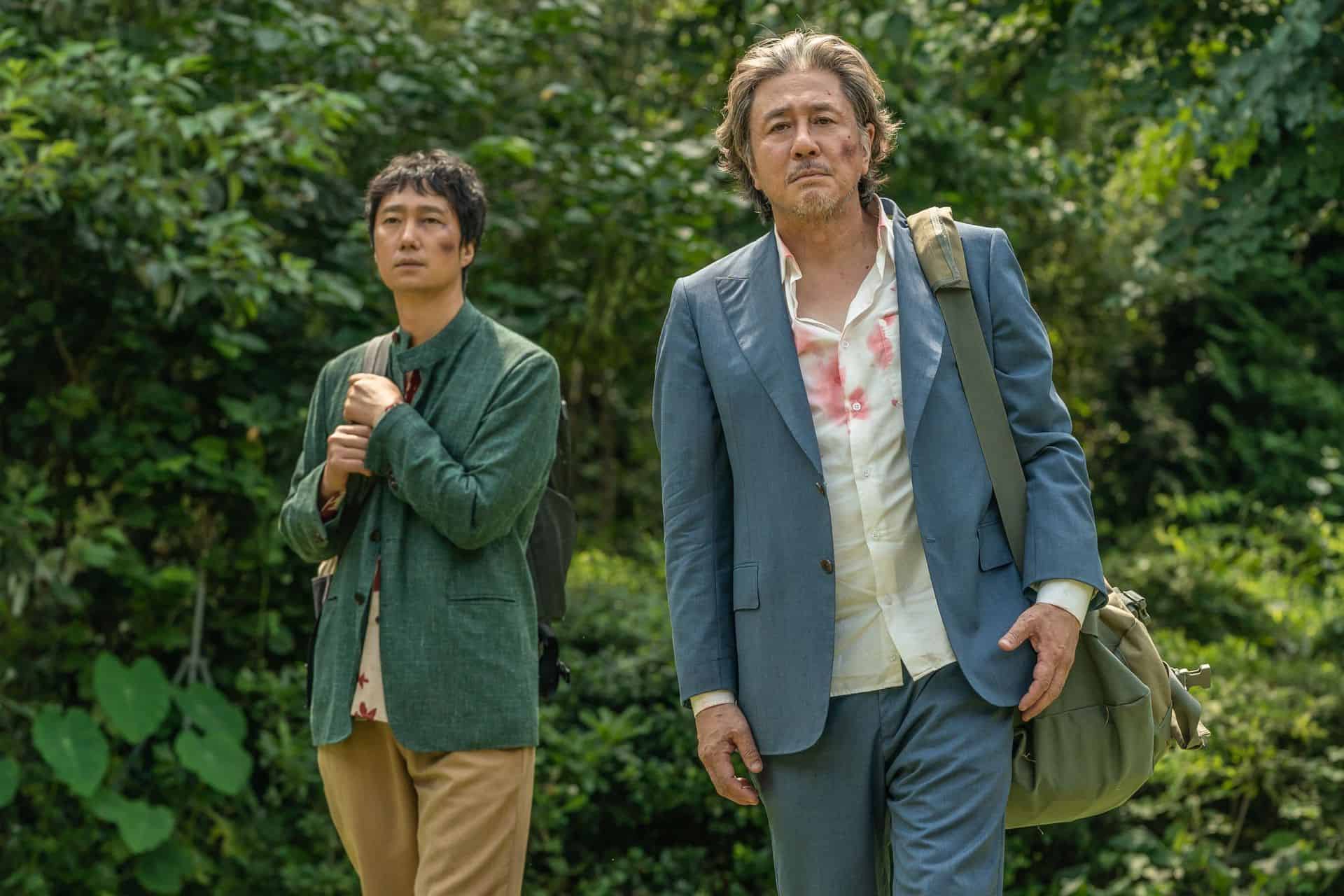
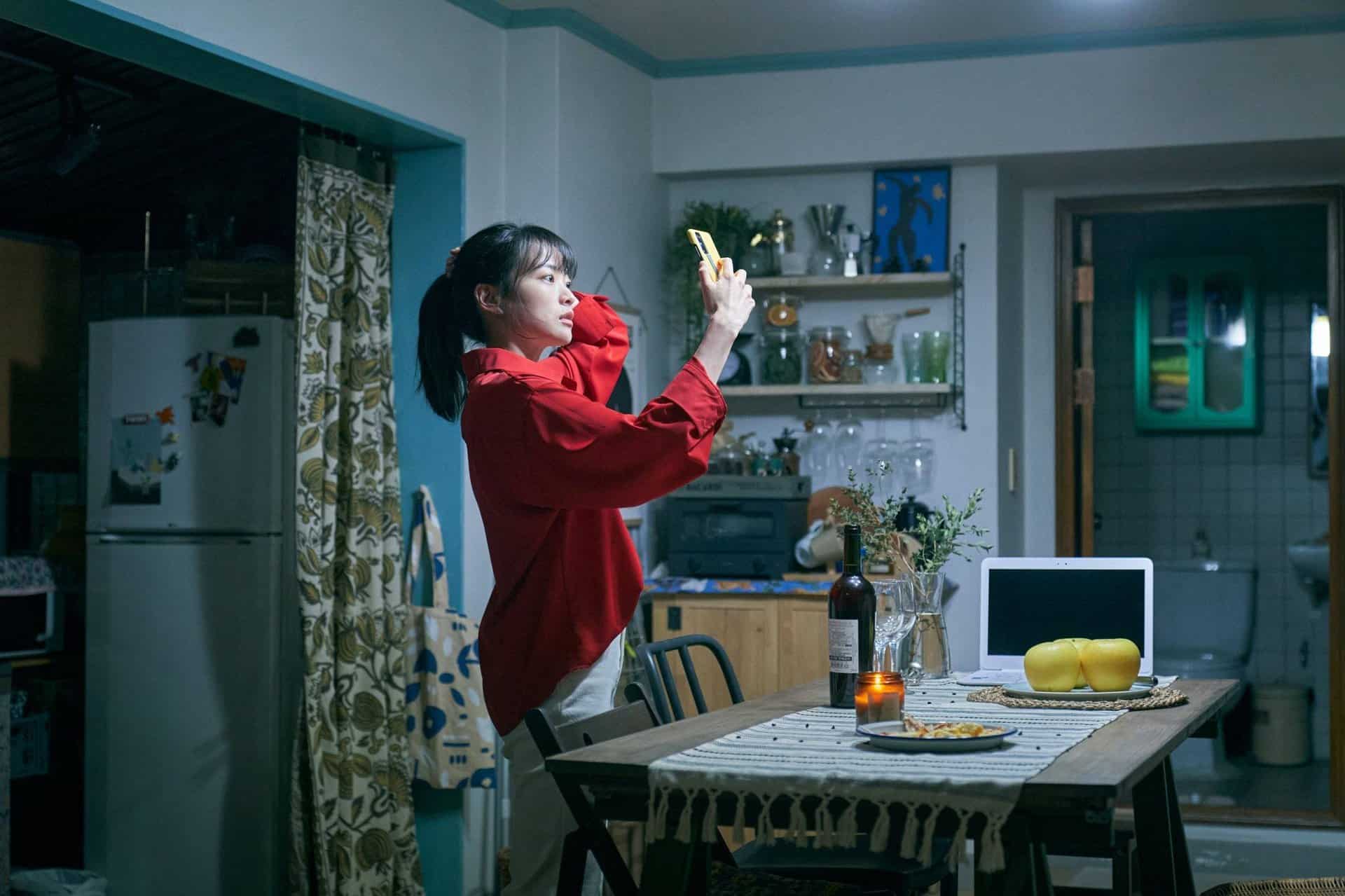







Disgusting
Only one malay film and no indian films mentioned. Writer in his/her own world.